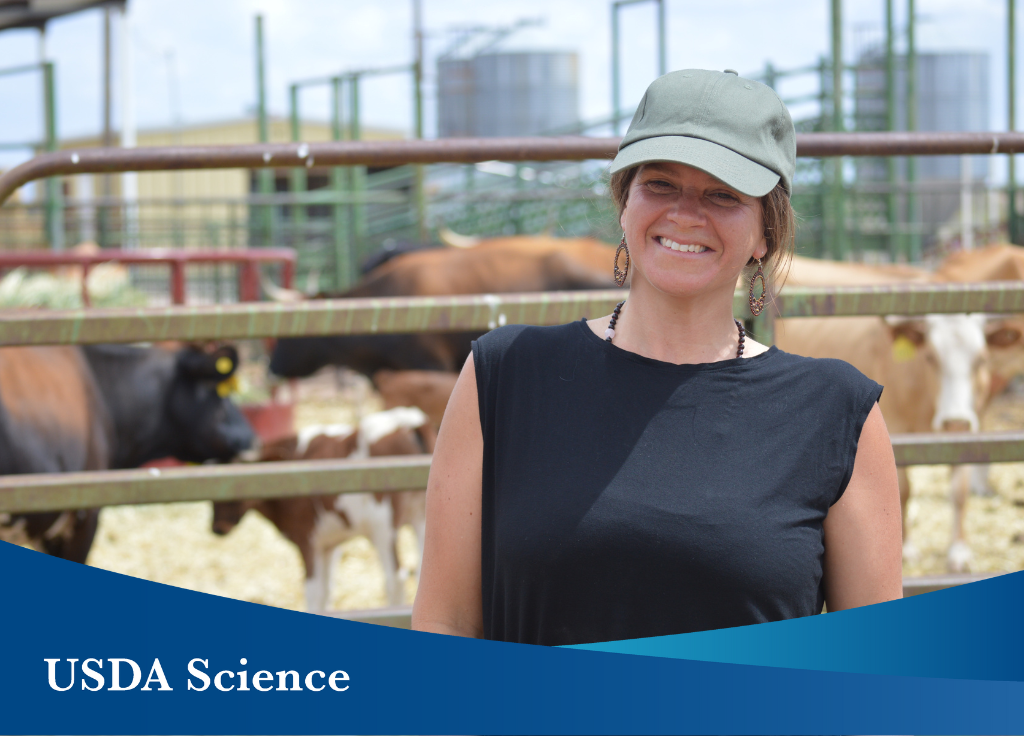U.S. Department of Agriculture (USDA) scientist Sheri Spiegal received an exciting award recognizing her pioneering work integrating social science and biophysical science with stakeholder engagement to help animal producers and crop farmers improve the redistribution of manure nutrients from farms with an excess to fields and pastures that can use it sustainably.
The New Innovator in Food & Agriculture Research Award, from the Foundation for Food and Agriculture Research, allows Spiegal to extend her studies on manureshed nutrient recycling while supporting her leadership on an initiative called the Manureshed Action Network. This new initiative is part of the Manureshed Working Group formed in 2018, a collaboration with the Long-Term Agrosystem Research Network, academia and industry.
The goal is to gain insights directly from feedlot, swine and poultry producers, crop farmers, manure managers, and conservation professionals who have been part of informal social management networks for years; to identify communication gaps between the farms with surplus nutrients and the areas where they are needed; and to connect those network “nodes.”
Spiegal and collaborators have been examining the efficiency of existing management networks to understand the barriers involved in these complex multi-scale processes, like the geographical, technological and communications challenges.
“We are using a stakeholder-centered approach to understand and address the social and economic barriers to nutrient redistribution and nutrient circularity,” said Spiegal. “The research aims to build awareness of the importance of social networks in manureshed management while building coalitions to manage the resource effectively, together.”
Spiegal plans to build longitudinal community working groups, starting in major states for animal feedlots and crop farms. Their aim will be to prevent nutrient accumulation in areas where it could negatively impact the environment, while saving commercial fertilizer costs for farmers – a win-win for the environment and farmers’ bottom lines.
March is Women’s History Month, and it is important we celebrate and recognize the extraordinary contributions of Spiegal and all USDA women in science who are making a difference.


